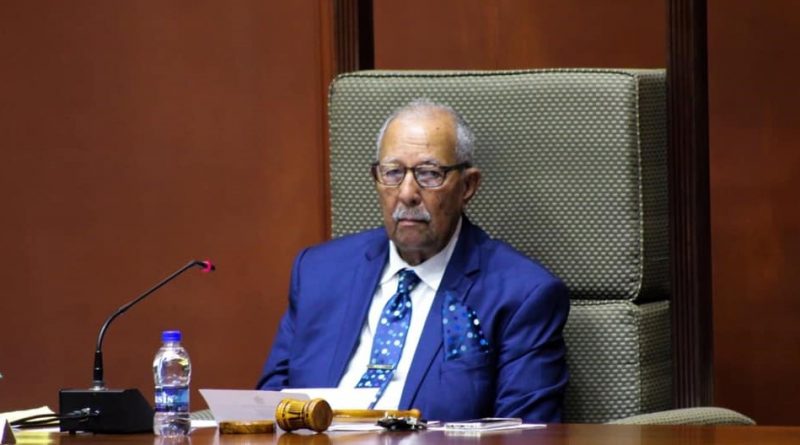Sir Gerald says Constitution is deficient on the matter of MP resignations and offers to submit legal opinion for reform
Following his concession that Members of the House of
Representatives are allowed, constitutionally, to resign, Sir Gerald
Watt, K.C., is now taking aim at the Constitution of Antigua and
Barbuda and those of the Eastern Caribbean States.
In his June 30 letter to former MP Kelvin “Shugy” Simon, Watt notes
that Section 125 of the local Constitution is mirrored in all the OECS
constitutions and that resignations in those countries are also “at
large” and automatic.
Watts then notes that, based on his research, other Commonwealth
jurisdictions – including the United Kingdom and Canada – prohibit
MPs from resigning “at large.” And in the case of the UK Parliament,
he claims, resignations are not permitted at all.
The latter statement has been widely contradicted by residents who
point to the recent resignations of three UK members of the House
of Commons, among them former Prime Minister Boris Johnson.
Ironically, in defense, Watt has speculated that Johnson was
“allowed” to resign because his expulsion by the House’s Privileges
Committee was imminent.
Meanwhile, Sir Gerald adds that Canada’s laws do not allow the
resignation of a Member while an election petition involving that
Member as a respondent is in train.
With that in mind, it appears, Watt has criticized Simon’s June 7
resignation, ahead of a High Court challenge, as “political chicanery.”
If the Constitution permits resignations in such circumstances, Watt
contends, then unscrupulous politicians and MPs can easily
manipulate them to create constitutional crises. These, he says,
include the removal of a sitting government, the dissolution of
Parliament, and other parliamentary chaos.
“This could hardly have been the intention of the framers of the
Constitution,” he declares. “What we have in Antigua is a lacuna in
the Constitution, and … so do the other Constitutions with similar
provisions.”
A lacuna is understood to be a missing portion in a document.
Critics of Watt are asking whether “pre-conditions for resignation
are the only thing the Speaker sees missing from the Constitution,”
and they are asking why, in his five-decades-long career, he has not
championed a comprehensive reform of the Supreme Law.
Meanwhile, taking all his concerns into account, Sir Gerald says he
sees it as his duty – not only as Speaker of the House, but as a
longstanding attorney – “to prepare and publish a legal opinion” on
these shortcomings.
He says he intends to distribute it to the Executive, the Parliament,
the media, and the body politic for public discussion, and for
possible reform of Section 125.
If such reform is not addressed, he predicts, there will be “a
constitutional [crisis] of major proportions in the not too distant
future.”
Meanwhile, some residents tell REAL News they are not impressed
by Sir Gerald’s sudden insights nor his offer to correct what he sees
as a constitutional omission.
“If it is clear that he does not understand the almost elementary
simplicity of Section 125 of the Constitution, who gives a [hoot]
about his legal opinion to change the section?” one resident asks.
“All that long writing is not necessary. His letter should have ended
in the first paragraph…after the word ‘Speaker,’” the former teacher
continues. “Anything else could have been a statement of apology
for the confusion he caused.”
Watt has copied his letter to Prime Minister Gaston Browne,
Opposition Leader Jamale Pringle, and Attorney-General Steadroy
Benjamin.




